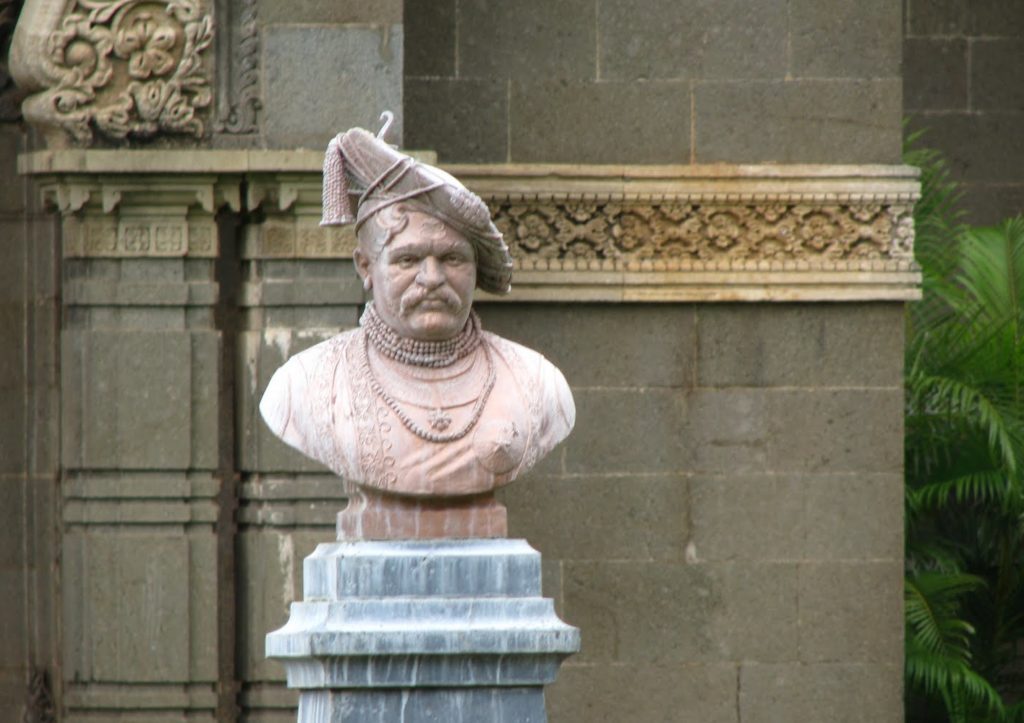
Shahu Maharaj – Maharaja Who Willed to Abdicate His Throne for Social Democracy in India
In the history of the world, Shahu Maharaj shines like the brightest stars in the galaxy who renounced everything for the welfare of suffering humanity. Shahu came to power when everything was in the flux in India. India was ruled by the British. They controlled 11 British Provinces and exercised indirect control over 500 princely states. The princes could micro-manage their empire, but the macro-management like defense and the external relationship was left to the British.
Shahu Maharaj was the prince of the Kolhapur state. Shahu Maharaj was trained to be a ruler by the British officials and seniors in his state. He studied many subjects, but also his theoretical training was supplemented by extensive field work. He traveled all over the places in India. He went abroad to study. He was trained as an able administrator and he worked very hard to be an able administrator. His life proved how one man can make a difference in the lives of many. He demonstrated how public policies can actually be worked out to remove contradictions in the society.
Shahu Maharaj experienced the Brahmin arrogance first hand in what is now famous as “Vedokta” episode. Shahu was not allowed to hear the recitation of “Vedas” because he was the Shudra according to Brahmins. Earlier in the history, Mahatma Jotiba Phule was insulted by the Brahmins and he launched the non-Brahmin movement. His movement gained strength and influenced the course of history by creating the true foundation of Indian nationhood. His movement was still fresh when Shahu came to the scene. Jotiba’s close friend, Dada Keluskar, the leader of the non-Brahmin movement was close to Shahu Maharaj as well.
Shahu Maharaj tried to keep the torch burning by fostering and supporting the movement started by Jotiba Phule.
Shahu became the staunch admirer of the non-Brahmin movement when he saw how his administration was dominated by the Brahmins. In his bid to create an equitable and efficient system of Governance, he initiated many policies, but the most significant were the policy of reservation. He reserved seats for the non-Brahmins in his administration. He also came up with the idea of reverse treatment to the Brahmins who dominated his administration and at times schemed against their own Maharaj. He created a negative list of those who were overly represented in the Government.
Perhaps, it is a time in India to think about “reverse” discrimination, in a sense that a “negative list” of those communities dominates every organ of the governance in India today. The communities which are listed in the “negative list” should be given representation according to their proportion of the population and the communities in the “positive list” must be advanced to various positions by creating the level playing field.
Shahu enacted other schemes that will benefit his people. The state of Kolhapur saw the advent of industries and growing economy under his reign. He built dams and markets for the economic growth, but he was not just interested in the economic growth, but his interest was primarily economic and human development. He started boarding schools for the untouchables and started special scholarships for the marginalized people. He also stressed on the education of the girls. His state policies were cleverly designed and meticulously executed.
But his greatest contribution came as the leader of the non-Brahmins. In the Mangaon conference held in 1920, Maharaj invited great leaders from all over India, including the great Buddhist monk, Bhante Bodhanand. And, young Bhim was given the prominent place in the conference. In his conference, the great Maharaj declared young Bhim the leader of the non-Brahmins and their future leader.
The friendship between Babasaheb Ambedkar and Shahu Maharaj is an example of how people should relate to each other as friends and colleagues.
The letters exchanged between them are moving testimony of the commitment to the cause bigger than one human life span. Babasaheb requested and Maharaj obliged. Maharaj requested and Babasaheb followed. Such was their friendship that when Maharaj died, Babasaheb was devastated. Maharaj supported every single initiative of Babasaheb Ambedkar. Maharaj gave funds for “MookNayak”, the first newspaper Babasaheb Ambedkar started. Maharaj gave a scholarship to Babasaheb to finish his education. When India was seeing the possibilities of electoral democracy in the 1930s, Maharaj was willing to support the politics of the non-Brahmins fully. He was committed to make a non-Brahmin movement an all India movement. Maharaj stood behind Babasaheb like the solid tower of strength.
Author – Mangesh Dahiwale, Human Rights Activist


+ There are no comments
Add yours